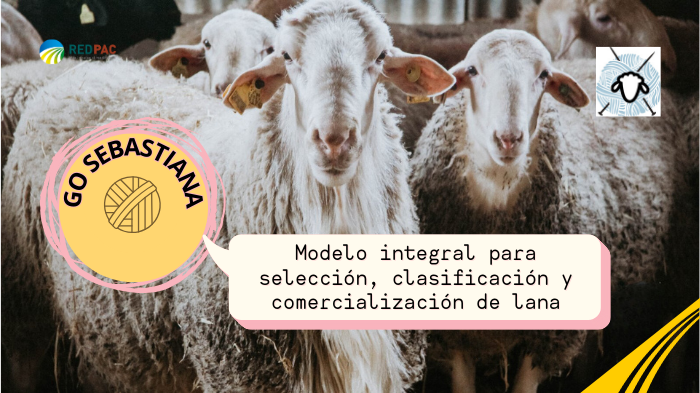
28 de September de 2023
The main objective is to implement solutions to improve and standardize wool quality. This should allow the current byproduct to be revalued so that it becomes a material that, classified by different qualities, gives livestock farmers negotiating power.
- The project aims to increase the competitiveness of the sector and increase the profitability of small farms.
- Its vision is to standardize and classify the quality of wool to enhance the value of the product and give negotiating power to farmers.
In the agricultural sector, there are a number of byproducts that do not generate significant profits for farmers and ranchers, but which nevertheless represent an enormous expenditure of time and resources. Examples include cereal straw, corn husks, cotton stalks, citrus pulp, and wool.
Specifically, the Sebastiana Operational Group works to find an outlet for and enhance the work of livestock farmers with one of them: wool .
Thus, this group set out from the outset to encourage small-scale sheep farms to discover the potential of this by-product.
The task force began to take shape in early 2021, but was not approved until 2022. During that time, agreements between partners were reached and the ideas that led to the current project were developed.
Goals
The main objective is to implement solutions to improve and standardize wool quality . This should allow the current byproduct to be revalued so that it becomes a material that, classified by different qualities, gives livestock farmers negotiating power .
Shearing animals is a necessity, so the Sebastiana Government proposes a series of measures:
- Development and consolidation of a wool quality improvement plan through objective analysis procedures and highly heritable phenotypic selection.
- Start-up of a small wool processing industry .
- Increased economic profitability of Castilian sheep farms through the direct sale of differentiated wool and associated services to the small wool processing industry created .
The project is currently one year into its planned three-year run. According to project manager Daniel Martín Corral of IMASDE Agroalimentaria , who spoke to the PAC Network, some quality tests have already been conducted using modern wool quality testing equipment in the laboratory, in addition to field analyses using more basic systems. However, time is still needed to assess the evolution of wool quality in individuals descended from the breeding males.
A wool processing center will also be opened, where wool will be delivered and processed; and a pilot study will be conducted on the effect of diet on wool quality.
Partners and financing
The GO Sebastiana is made up of the Centre for selection and improvement of sheep and goats of Castilla y León ( Ovigén ), Genovis , the Spanish Association of breeders of select Castilian breed sheep ( ANCA ), the El Navazo slaughterhouse , Ovintegral Iberia , dLana and IMASDE Agroalimentaria .
The project has a total budget of 704,476.76 euros , of which 558,912.76 come from aid for innovation projects from the European Association for Innovation in Agricultural Productivity and Sustainability ( AEI-Agri ) with EU Next Generation funds , articulated through the National Rural Development Program and the European Agricultural Fund for Rural Development ( EAFRD ).











